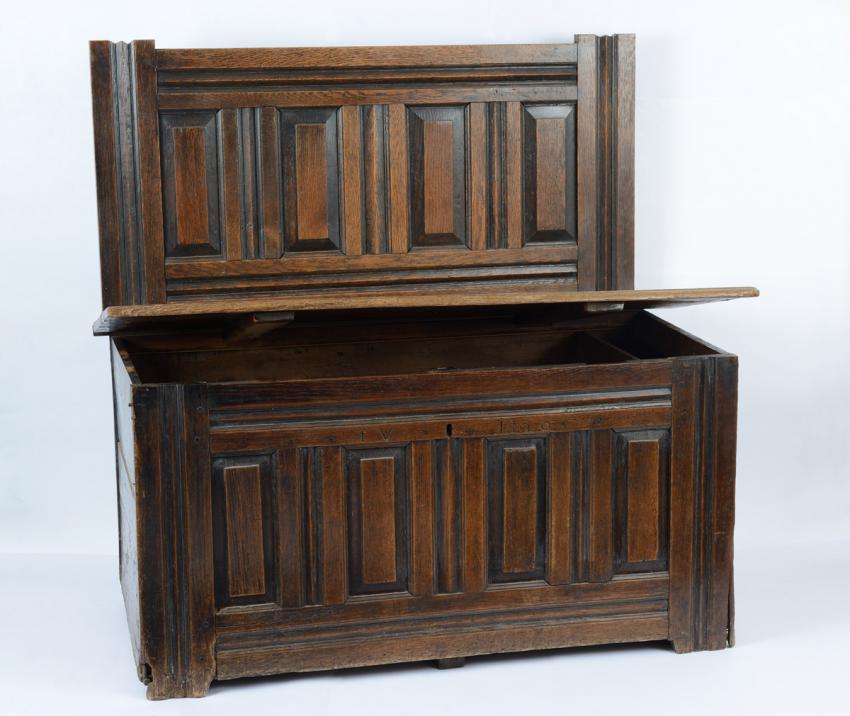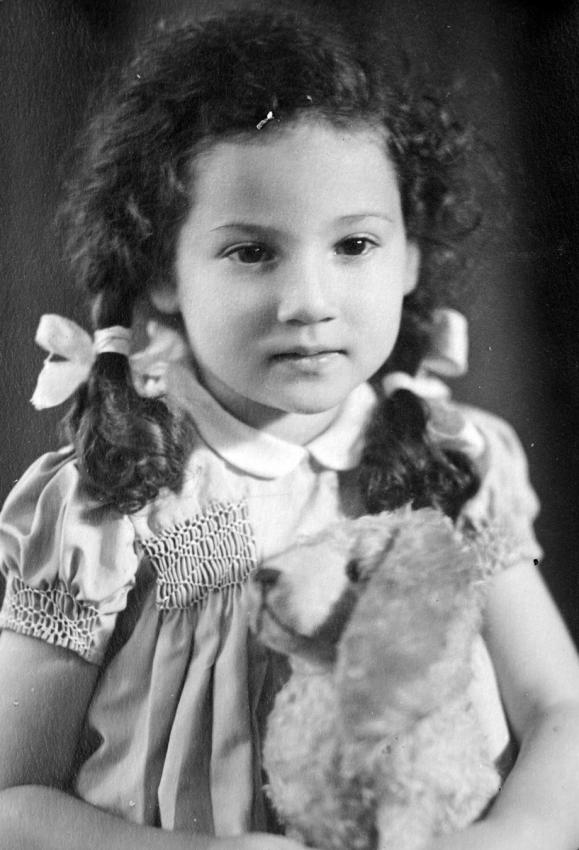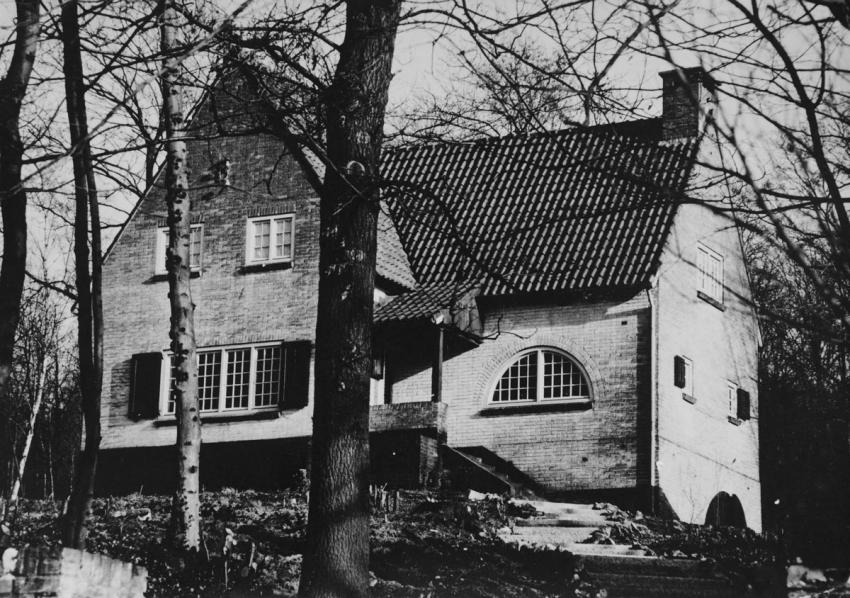Frederika's family had been imprisoned in Amsterdam in a holding location where Jews were concentrated before their deportation to the camps. Louis, Frederika's father was the first to be deported. Her mother, Marta, worked in the crèche and managed to stay with her children until she was also deported. At the last minute she smuggled her toddler, Frederika, out through a window of the building to the street. Her 8-year-old brother Bension was too big to pass through the window. He was deported with his mother to Sobibor where they were murdered. The Dutch resistance members who received Frederika, placed her in the home of Elisabeth de Grebber in the southern Netherlands, where she remained for the duration of the war.
Elisabeth's home was furnished with assorted antique furniture, including a wooden chest from 1820 that served as a seat but also as a small hiding place. The Germans came a number of times and searched the three-story house, and those hiding in the house hid in the attic behind a concealed door. Whenever little Frederika didn't manage to reach the attic in time, she hid in the wooden chest that was situated on the ground floor.
After the war, Sara Roet, Frederika's aunt found her, but when she saw that Elisabeth was raising her niece with love, Sara decided that for the good of the child she should stay with Elisabeth. Taking a step that was unusual at the time, Sara fought against the decision of the Jewish organizations who wanted to transfer Frederika to a Jewish children's home. The courts decided in favor of leaving Frederika with Elisabeth.
Frederika donated the wooden chest to Yad Vashem's Artifacts Collection in tribute to Elisabeth de Grebber, who saved her life and acted with outstanding bravery to save assorted individuals during World War II.
On December 2, 2014, Yad Vashem recognized Elisabeth de Grebber as Righteous Among the Nations.
Yad Vashem Artifacts Collection
Courtesy of Frederika Sarlui Levy, Tel Aviv, Israel












